Around The Web
UN confirms 2019 dates for COP25 climate talks in Chile
Treasure trove of new insects discovered on island
Climate change: Rain melting Greenland ice sheet 'even in winter'
Women Fest founder plans training camp for climate rebels
Spring Uprising festival in Bristol will feature bands and civil disobedience instruction
The woman behind the UK’s first female-only festival is setting up a climate activism training camp to instruct hundreds of young people in civil disobedience before a series of environmental protests planned for the coming weeks.
Tiana Jacout is putting on the Spring Uprising festival in Bristol this month for people taking part in the ongoing school strikes and the Extinction Rebellion protests planned for 15 April.
Continue reading...South Korea lowers bid limits for Mar. 13 CO2 auction
Western Australia EPA backs mandatory carbon offsetting for new big-emitting projects
Cern cuts ties with 'sexist' scientist Alessandro Strumia
Giving legal rights to nature
'Falling out of trees': dozens of dead possums blamed on extreme heat stress
Rescuers found 127 ringtail possums along the shoreline and in the water on Victoria’s Mornington Peninsula
More than 100 dead and injured ringtail possums have been found by wildlife rescuers along a single stretch of beach in Victoria in what ecologists say is becoming an annual occurrence due to extreme heat.
Rescuers and wildlife carers discovered 127 ringtail possums along the shoreline and in the water at Somers Beach on the Mornington Peninsula on Saturday during a four-day period that saw consistent temperatures in the high 30s, warm nights and bushfires in parts of the state.
Continue reading...The patch unplugging premature babies
Tesla’s cheapest Model 3 may not arrive in Australia until 2020
 It will be months before the Standard Range Model 3 arrives in Europe and China, meaning a likely 2020 arrival date for Australia.
It will be months before the Standard Range Model 3 arrives in Europe and China, meaning a likely 2020 arrival date for Australia.
The post Tesla’s cheapest Model 3 may not arrive in Australia until 2020 appeared first on RenewEconomy.
Rooftop solar trading platform cuts out energy market middle man
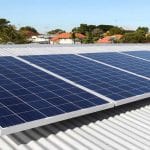 Energy Locals, Enosi launch rooftop solar trading platform to put consumers in charge of who they sell their excess PV generation to, and for how much.
Energy Locals, Enosi launch rooftop solar trading platform to put consumers in charge of who they sell their excess PV generation to, and for how much.
The post Rooftop solar trading platform cuts out energy market middle man appeared first on RenewEconomy.
Australia’s transport emissions laid bare, in four very nice graphs
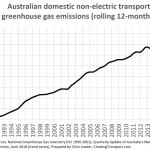 Transport expert Chris Loader's easy-on-the-eye graphs paint a very clear picture of Australia's transport-based carbon emissions.
Transport expert Chris Loader's easy-on-the-eye graphs paint a very clear picture of Australia's transport-based carbon emissions.
The post Australia’s transport emissions laid bare, in four very nice graphs appeared first on RenewEconomy.
Horizon Power swaps poles and wires for solar and storage
 W.A. utility to decommission 54km of poles and wires and replace with 13 Micro Power Systems combining solar, battery storage and a back-up diesel generator.
W.A. utility to decommission 54km of poles and wires and replace with 13 Micro Power Systems combining solar, battery storage and a back-up diesel generator.
The post Horizon Power swaps poles and wires for solar and storage appeared first on RenewEconomy.
Energy utilities are building their solar portfolios
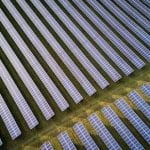 New data from Wiki-Solar reveals that some of the world’s leading energy utilities are beginning to build significant solar generation portfolios.
New data from Wiki-Solar reveals that some of the world’s leading energy utilities are beginning to build significant solar generation portfolios.
The post Energy utilities are building their solar portfolios appeared first on RenewEconomy.
Networks unveil “safe and fair” rooftop solar, battery connection standards
 Energy Networks Australia releases first of standardised guidelines to govern “safe, consistent and efficient” installation of rooftop solar and storage across NEM.
Energy Networks Australia releases first of standardised guidelines to govern “safe, consistent and efficient” installation of rooftop solar and storage across NEM.
The post Networks unveil “safe and fair” rooftop solar, battery connection standards appeared first on RenewEconomy.
South Australia solar shines out of Snowy’s pumped hydro modelling
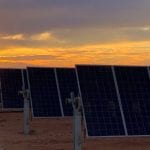 The modelling used to promote the multi-billion Snowy 2.0 pumped hydro project appears to assume that in South Australia, solar power is produced during the night.
The modelling used to promote the multi-billion Snowy 2.0 pumped hydro project appears to assume that in South Australia, solar power is produced during the night.
The post South Australia solar shines out of Snowy’s pumped hydro modelling appeared first on RenewEconomy.
WA prepares plan to shift from coal to renewables, and distributed energy
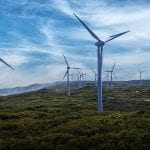 W.A. government heralds a rapid shift from coal to renewables, and unveils plans to deal with the dramatic uptake of rooftop solar, battery storage and EVs.
W.A. government heralds a rapid shift from coal to renewables, and unveils plans to deal with the dramatic uptake of rooftop solar, battery storage and EVs.
The post WA prepares plan to shift from coal to renewables, and distributed energy appeared first on RenewEconomy.
Statkraft plans 1GW solar, wind, storage “virtual power plant” in UK
 Stakraft plans to build what it is calling UK's first virtual power plant to integrate wind, solar, battery storage, and gas for over 1GW of power.
Stakraft plans to build what it is calling UK's first virtual power plant to integrate wind, solar, battery storage, and gas for over 1GW of power.
The post Statkraft plans 1GW solar, wind, storage “virtual power plant” in UK appeared first on RenewEconomy.
Energy efficiency market report: Lighting strikes twice in Victoria
 Changes to product requirements and compliance matters, plus the election in New South Wales, have made for interesting times in NSW and Victoria energy efficiency markets.
Changes to product requirements and compliance matters, plus the election in New South Wales, have made for interesting times in NSW and Victoria energy efficiency markets.
The post Energy efficiency market report: Lighting strikes twice in Victoria appeared first on RenewEconomy.



